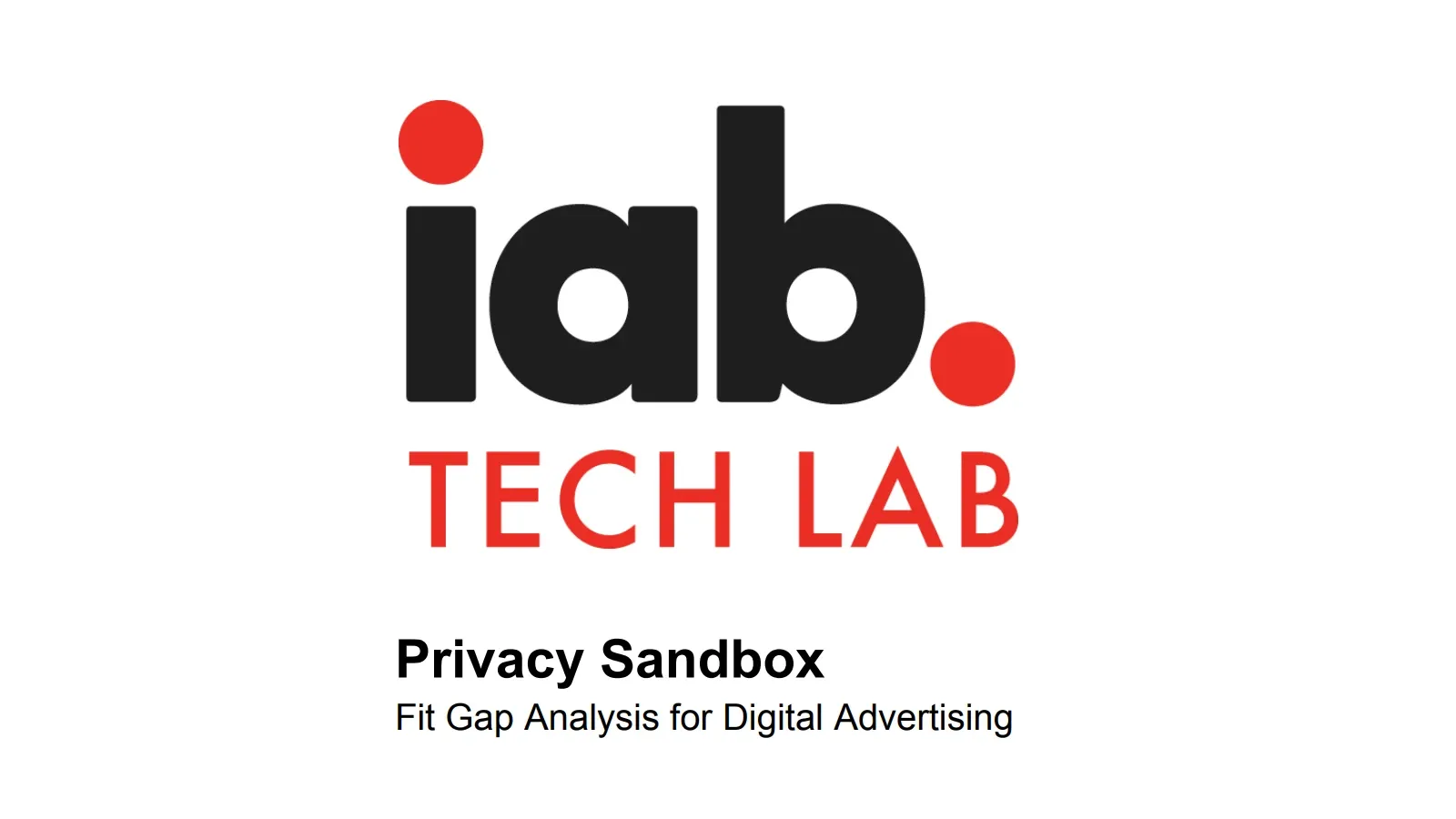IAB Tech Lab releases In-Depth Analysis of Google's Privacy Sandbox
The IAB Tech Lab last week released a comprehensive analysis of Google's Privacy Sandbox, raising concerns about its readiness for industry-wide adoption.

The IAB Tech Lab last week released a comprehensive analysis of Google's Privacy Sandbox, raising concerns about its readiness for industry-wide adoption.
- Measurement: Essential metrics like impressions and clicks will shift to aggregated reporting, hindering campaign analysis and optimization.
- Brand safety: Difficulty ensuring ad placement aligns with brand values and avoids harmful contexts.
- Technical complexity: Retooling required for programmatic advertising due to Google's involvement in ad exchange and serving.
- Commercial considerations: Potential legal and business concerns due to Google's dual role in the ad transaction.
- Investment costs: Significant development and infrastructure investments needed for both buy and sell-side players.
- Call to action: IAB Tech Lab invites industry feedback during a 45-day public comment period (until March 22nd, 2024).
Google's Privacy Sandbox
Google's Privacy Sandbox is an initiative aiming to replace third-party cookies in Chrome and Android while preserving user privacy. Here's a breakdown:
Goals:
- Privacy: Protect user data by eliminating third-party tracking and limiting access to sensitive information like IP addresses.
- Functionality: Maintain audience targeting and programmatic advertising capabilities for publishers and advertisers.
Impacts:
- Third-party cookies: Removed, disrupting current targeting and measurement practices.
- New features: On-device auctions, interest groups, fenced frames, and more for targeting and reporting.
- Data limitations: Restricted access to user information, impacting campaign analysis and optimization.
- Privacy protections: Noise and delay introduced in reporting to anonymize data.
Key changes:
- Targeting: Shifts from individual-based tracking to group-based (cohorts) and contextual targeting.
- Reporting: Aggregated and anonymized data instead of individual user-level tracking.
- Technical complexity: New APIs and processes for programmatic advertising and measurement.
Overall, the Privacy Sandbox presents a significant shift in the digital advertising landscape, requiring adaptation and new strategies for both publishers and advertisers.
The initiative is still under development, and specific features and functionalities may change.
Industry concerns exist regarding the effectiveness of the proposed solutions and potential competitive advantages for Google.

